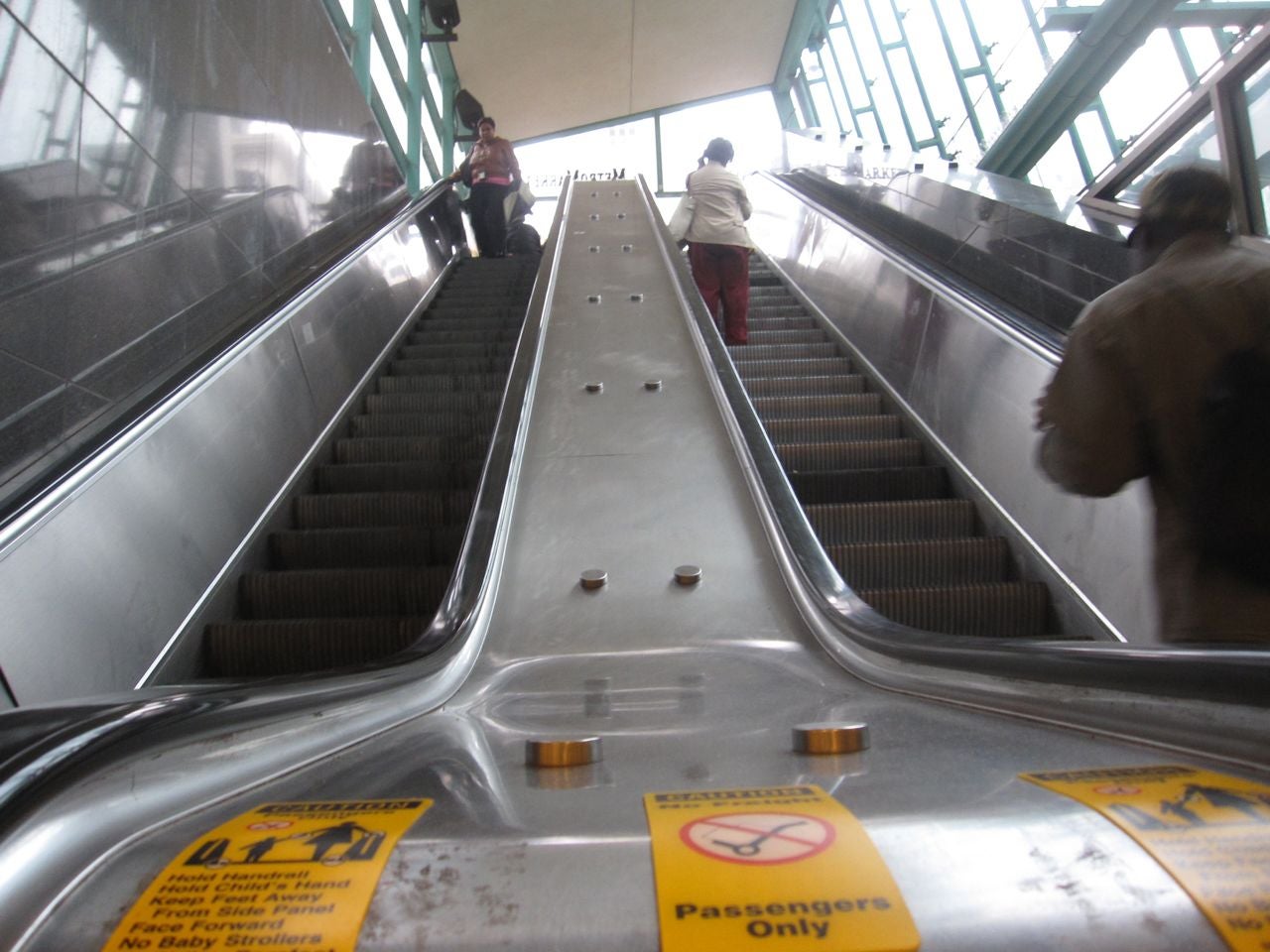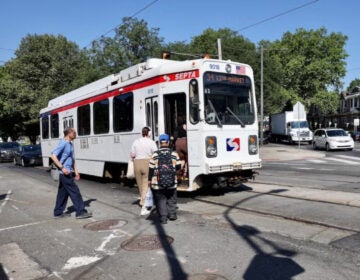SEPTA appeals lower court ruling on its elevator responsibility

SEPTA continued a long-running and contentious battle against a disabilities advocacy group on Monday, asking a three-judge panel of the U.S. Court of Appeals for the Third Circuit to overturn a lower court ruling ordering it to install two elevators in the 15th Street concourse to comply with the Americans with Disabilities Act.
The court had ruled that because SEPTA had replaced an escalator and staircase down to the concourse during renovations in 1999 it was obliged to make the area accessible to the disabled by putting in an elevator at the northwest corner of 15th and Market Streets and another in the southeast corner of the City Hall courtyard.
In oral arguments, SEPTA attorney Jo Bennett said the authority had already met disability requirements because the concourse is a part of Suburban Station, which is currently served by two elevators. (She said federal regulations only required SEPTA to install one elevator for the station.) And although federal regulations require SEPTA to increase accessibility when it makes significant alterations to stations, Bennett said the authority did that by building the new escalator and stairway according to ADA regulations by, for example, extending the wellway of the new escalator according to federal guidelines.
The law, Bennett argued, doesn’t require SEPTA to build elevators as part of renovations to the escalator and stairway.
That argument appeared to be greeted skeptically by the court.
Judge Julio M. Fuentes said SEPTA’s argument “doesn’t make sense to me.” Municipalities are required to make sidewalks accessible when they do road resurfacing, which doesn’t directly impact sidewalks. Fuentes said it doesn’t make sense to require accessibility accommodations there but not where the disabled “most need access” — namely, going up and down stairs.
Stephen P. Gold, who argued the case for Disabled in Action of Pennsylvania, which brought the suit, latched onto Fuentes’ point and made it the basis of his argument. The ADA is meant to bring about incremental change, Gold argued, and by making the renovations to the elevator and stairs, SEPTA had triggered federal accessibility requirements. He also criticized SEPTA’s argument that the concourse already met ADA requirements, arguing that it serves the inaccessible 15th Street station on the Market-Frankford El, not Suburban Station, which is already accessible.
“You can define Suburban Station to go down to 16th and Locust” using SEPTA’s definition because it’s possible to walk underground to get there from the station, Gold said. He argued the authority was arbitrarily deciding on the boundaries of Suburban Station in a way that would bolster its argument. Gold added the whole issue was besides the point, however. Even if the concourse is considered part of Suburban Station, he argued federal regulations still require the area be made accessible.
The two sides also sparred over the city’s role in allowing the elevators to be built. Bennett argued that, because the land on which the elevators would be built is owned by the city, the court can’t require SEPTA to build on it. Before construction could begin, Bennett said, City Council would have to vote to approve permanent easements to SEPTA.
Gold shot back that city lawyers had given him verbal assurances that the city would agree to the elevators. He said the court should make SEPTA ask the city for permission to build them and can revisit the matter if the city fails to give permission.
Monday’s proceedings are the latest in an eight-year legal battle that has angered disabilities-rights advocates. Gold said last week that “the disability community is so p—-d off at SEPTA for fighting” the district court’s ruling requiring the construction of the elevators. “I mean, they’re livid.”
For his part, SEPTA spokesman Richard Maloney said after oral arguments that the lawsuit misses the point. The elevators Disabled in Action has been pushing for don’t lead to places where disabled people could access transit because they have to go up or down more steps to get onto any train platforms. (Gold said during oral arguments that the elevators would assist people in walkers and with canes who can use stairs but have difficulty with them. They would also provide access to a SEPTA ticket office.)
Maloney also said that SEPTA is planning on building 12 new elevators for the area when it renovates the City Hall station. That $100 million project has been put on hold because of a loss in state funding.
Contact the reporter at acampisi@planphilly.com
WHYY is your source for fact-based, in-depth journalism and information. As a nonprofit organization, we rely on financial support from readers like you. Please give today.




